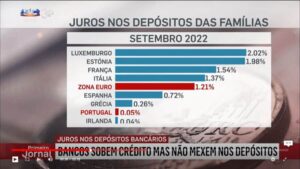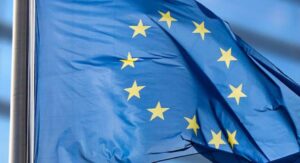Friday 13th, lucky for some?
GBP: Sterling reaches fresh highs against USD last seen in July
Sterling’s luck still seems to be improving, jumping to a high of $1.24, the first time since July 2019 today. US inflation data presented a mixed outlook, with core inflation increasing to 2.4% in August, but headline CPI did not meet its forecast. This led to a drop in US bond yields which had an impact on the greenback. The pound also appears to be holding onto some of its gains following the ECB’s announcement of a fiscal stimulus package – also 0.3% up against the euro.
Making gains against the euro on Thursday with a backdrop of disappointing industrial output data, Brexit for once wasn’t the key factor in the pound’s pickup. EU data showed that July’s year-on-year output from Spain fell from 1.6% to 0.8%. Positive GDP data for the UK mid-week also helped sterling rise against both USD and EUR – a report from the Office of National Statistics (ONS) showed that GDP had grown by 0.3% in July.
On Monday evening the prorogation of Parliament began. Since the five-week suspension commenced this week and MPs rejected a second call for a snap general election, as well as Scotland’s highest court ruled the suspension is unlawful, it’s become quite evident once more that Brexit will still be heavily dominating economic and currency ups and downs despite the Westminster shutdown. Later in the week the government published the Operation Yellowhammer documents, detailing what a potential no-deal could mean for price rises, supplies and potential business conditions.
EUR: Mixed response to ECB fiscal stimulus plans
The big event for the euro was the European Central Bank (ECB) meeting, with markets expecting the ECB to not only lower rates but also to announce a stimulus package. In the end ECB President Draghi stated that they will cut interest rates by only ten basis points, from -0.40% to 0.50%. Also accompanying this reduction is a tier system which will exempt some banks from punitive, negative rates.
Stating that interest rates will remain at present or lower levels for a while until inflation nears its target, the 10 year German bund fell much lower following the announcement. During the press conference, the ECB said GDP expectations have been revised down based on geopolitical concerns, with EUR/USD trading lower following Draghi’s comments.
The ECB added that it will resume its bond-buying mechanism, Quantitative Easing, less than a year after ending it. They will buy €20 billion worth of euro-zone bonds every month, starting from 1 November. This decision was at the lower end of expectations.
In other news the DUP dismissed reports that it had changed its stance on the controversial backstop in the Brexit deal.
USD: Under pressure due to expectations of a rate cut from the Fed
Trump announced a delay of the tariffs to be imposed from October 1 to October 15. The People’s Republic of China will be celebrating their 70th anniversary on October 1 and this gesture of goodwill by the President is considered to be more symbolic than substantial, but they are positive moves nonetheless. The US dollar made gains earlier in the week too as hopes of trade talk progress included China publishing a list of tariff exemptions. This de-escalation is seen as a positive sign by many ahead of talks scheduled next month.
There was also a rise in US Treasury yields and US equities which gave the dollar some assistance. However, the numbers did nothing to alter expectations that the Federal Reserve will cut interest rates this month.
CAD: Oil prices give Loonie a boost
The Loonie saw some upward momentum this week as the bullish run on oil prices continued, underpinning demand for commodity based currencies. Oil prices moved above the $58 level, the highest in six weeks. This move was the result of renewed hopes that OPEC and its allies will agree to extend an agreement to reduce oil output. Stronger than expected housing data mid-week showed that building permits rose by 3% in July, boosting the Canadian dollar.
Prime Minister Trudeau announced Federal elections where he will be seeking a second term. His once-expected easy second term has become tougher, with concerns over health care, climate change and ethics the main focus.
AUD: RBA rules out the need for QE as Aussie rises on US-China trade war progress
Alongside the positive sentiment caused by progress in the US-China trade talks, the Australian dollar had more assistance when the Reserve Bank of Australia (RBA) reiterated that a quantitative easing (QE) programme was unlikely to be needed. Their current approach is to maintain the current cash rate of 1% to support the economy. A rebound in Asian equity markets also helped AUD/USD reach a six-week high of 0.6885.
However, it’s important to note that earlier in the week the Aussie was on the back foot after negative Westpac Consumer Sentiment figures. A drop of 1.7% to 98.2 in September were announced just a day after the National Bank of Australia reported a negative impact on the AUD from a deteriorating business conditions index and damaged business confidence.
NZD: Kiwi loses out as AUD makes gains
The New Zealand dollar reached a five month low against the Aussie as Australia reaped the benefits of trade war tensions between the US and China easing. The main driver for the Kiwi seems to be global risk appetite which right now appears to be recovering after a wobbly year.
August’s New Zealand business PMI contracted to 48.4, with traders’ once more getting the jitters regarding the country’s economy. The global dairy trade index announcement next week could give the Kiwi a much needed boost, but only if there are signs of improvement. GDP data will also be closely watched next week, which is expected, and hoped, to have risen.
For corporate partnerships enquiries, please call: +44 (0) 203 823 0526 or email: corporatepartnerships@moneycorp.com
For personal partnerships enquiries, please call: +44 (0) 207 828 7000 or email: partners@moneycorp.com
For all corporate enquiries, please call: +44 207 823 7400 or email: enquiries@moneycorp.com
Please visit our website here to find out more
moneycorp is a trading name of TTT Moneycorp Limited which is authorised by the Financial Conduct Authority under the Payment Service Regulations 2017 (reference number 308919) for the provision of payment services.
For competitive exchange rates, low transfer fees, expert guidance and the special offer of your FIRST TRANSFER FREE call moneycorp on +44 (0) 207 823 7400 or visit www.moneycorp.com/portugal-resident




















